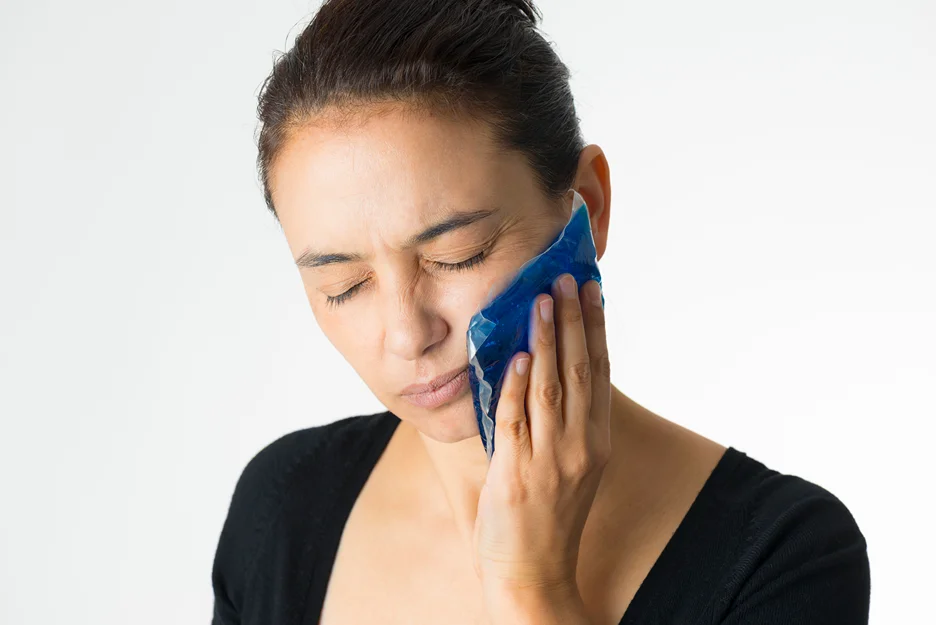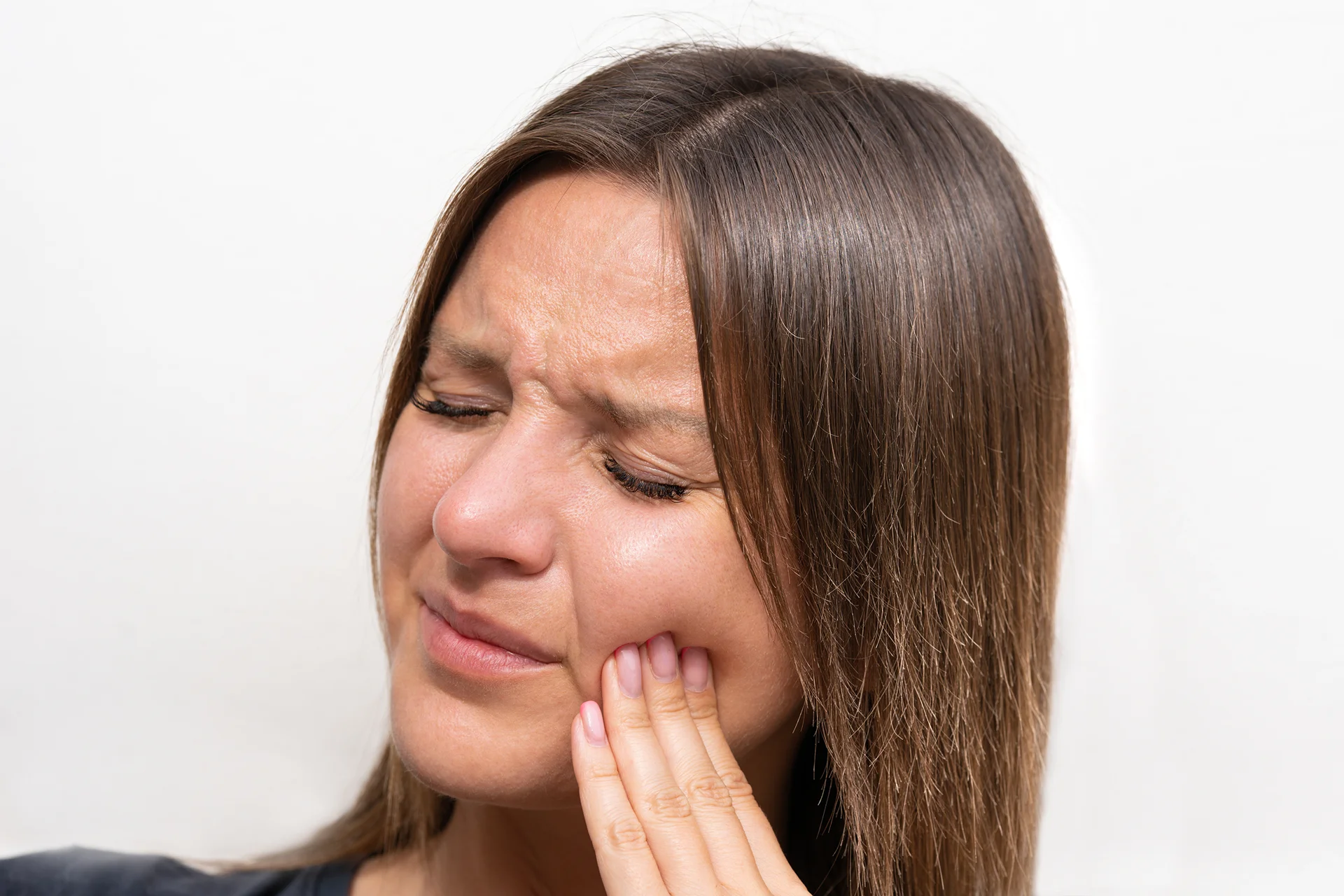Discover the Connections Between Toothaches and Neck Aches
That throbbing, pounding pain in your tooth makes it hard to think about anything else. But did you know that tooth pain can radiate up into your jaw, ear, and even neck?
It’s true – your pearly whites are connected to more than just your smile. Read on to understand the link between dental issues and neck pain, and how to find relief.
The Anatomical Connection of Toothaches and Neck Pain

There are several anatomical structures in the head and neck region that can contribute to both toothaches and neck pain. Two major ones are the trigeminal nerve and the temporomandibular joint (TMJ).
Trigeminal Nerve
The trigeminal nerve is the main sensory nerve of the face and mouth. It has three branches that carry sensations from the upper, middle and lower portions of the face.
Trigeminal neuralgia is a condition caused by irritation of the trigeminal nerve. It results in episodes of severe, stabbing facial pain that may be triggered by activities like chewing, brushing teeth or swallowing. As the trigeminal nerve also supplies sensation to the teeth, its irritation can cause toothache pain.
Temporomandibular Joint (TMJ)
The TMJ is the joint that connects the jawbone to the skull. Dysfunction or damage to the TMJ can lead to pain in the joint that may radiate to the face, jaw, teeth, head, neck and ears.
TMJ disorders are a common anatomical cause of both toothaches and neck pain. Grinding or clenching of the teeth puts added pressure on the TMJ, which can exacerbate these pains.
Additionally, poor posture like forward head position can add strain to the neck muscles and compress structures like the trigeminal nerve. This can increase tension and pain sensitivity in the jaw and teeth.
Don’t Let Toothache Slow Your Day. Get Connected to the Best Dentists and Orthodontists Near You!
How Toothache Cause Neck Pain

Toothaches may generate neck pain through various mechanisms that ultimately cause inflammation or strain around the head and neck. This is due to the interconnected nerves and musculoskeletal structures between the teeth and cervical spine. Specifically,
Tooth Infection
Tooth infections like abscesses are a common cause of neck pain for a few key reasons. Abscesses form when bacteria invade the tooth’s pulp, and this infection can then spread into the jawbone, ear, and neck through connected spaces.
Severe tooth decay reaching the roots can also make neck pain worse due to inflammation spreading through the jaw. In rare cases, tooth infections even cause neck swelling called Ludwig’s angina, where the bacteria spreads into the neck tissues.
Deep dental infections may require drastic treatments like tracheostomy due to the extent of neck swelling involved.
Bad Molar
Molars are the large grinding teeth at the back of your mouth, and their deep roots and chewing function make them prone to problems that can result in neck pain. Dental decay and tooth infections in molars release bacteria that spark inflammation far beyond the tooth itself, including the jaw, ear, and neck.
Damaged molar pulp also radiates pain signals that you’ll feel in your head, neck, ear, and jaw. Bruxism, or teeth grinding typically at night, strains the jaw and neck muscles as well, and poorly aligned molars contribute to this.
A study has shown that about 90% of patients who have attended an emergency dental clinic have reported pain with pulpal origin in the head, face and neck region.
In rare cases, an extracted molar’s infection spreads, causing neck swelling and breathing issues if left untreated. So taking good care of your molars protects your neck too! Being proactive with molar fillings and crowns is key.
Oral Inflammation
Oral inflammation from conditions like gum disease, ulcers, and oral mucositis can influence neck pain in a few ways. Oral mucositis from cancer treatment causes severe mouth pain, which alters posture and strains the neck muscles.
Corticosteroids used for neck pain treatment have oral side effects like thrush and swelling, worsening inflammation. Medications like oxycodone for neck pain also list oral swelling as a side effect, resulting in more inflammation.
Radiation therapy itself can cause oral tissue fibrosis and neck muscle stiffness over time as well. Oral inflammation indirectly contributes to neck pain in some cases, so proper oral care is vital to avoiding this cascade.
Tooth Extraction
Tooth extractions, especially wisdom teeth, can occasionally cause neck pain after the procedure through a few mechanisms. Infections starting at the extraction site can spread into the jaw and neck, causing swelling and pain. See your dentist urgently if you have a post-extraction infection.
Swelling and inflammation from normal healing can also radiate up into the jaw and neck muscles, though this typically resolves within days. Dry socket, where a blood clot fails to form, is severely painful, and the jaw and neck ache on the extraction side.
Rarely, bacteria travel to the cervical discs as well, resulting in neck pain typically linked to injections during the extraction. Your dentist will minimize extraction risks by prescribing antibiotics and steroids, but do watch for neck pain signaling infection.
Neck Hurting From Your Toothache? Sign Up On Kaly To Get Expert Support And Solutions Now
What Toothache Remedies Alleviate Neck Pain?

Treating the toothache itself is step one. Here are some simple at-home remedies to try:
- Ice Packs
Applying ice packs or cold compresses can help reduce inflammation and swelling around the tooth and jaw which is often putting pressure on nerves and causing referred pain into the neck.
Wrap some ice cubes or a cold pack in a towel and hold it against the cheek near the painful tooth for 10-15 minutes at a time, taking breaks in between.
The cold helps constrict blood vessels, slowing circulation and reducing swelling. This takes some of the pressure off the irritated nerve endings, potentially providing toothache relief and easing tension in the neck muscles as well.
- Acupressure
Massaging pressure points around the jaw and cheekbone can help temporarily numb pain signals from the tooth to the brain. Use your fingers to gently but firmly massage in circular motions along the upper jawbone, below the cheekbone, and along the hinges of the jaw on both sides of the face.
Focus on spots that feel tender. Acupressure may stimulate endorphins for natural pain relief while loosening tight jaw and neck muscles that are exacerbating nerve and tooth pain. Apply pressure for 5-10 minutes at a time on each side of the face.
- Pain Relievers
Over-the-counter medications like ibuprofen (Advil, Motrin) or acetaminophen (Tylenol) can help reduce toothache pain, swelling, and inflammation. This allows the irritated nerve and surrounding muscles to calm down, taking tension off the neck as well.
Be sure to take the recommended dosage appropriate for your age and health status. Combining these medications with other remedies like ice and acupressure may provide even more toothache and neck pain relief. See your dentist promptly if OTC meds are not giving adequate relief.
See your dentist right away if over-the-counter remedies aren’t giving you relief. They can diagnose and treat the tooth issue promptly to prevent complications. Catching problems early is ideal.
The Kaly Advantage

At Kaly, we make booking emergency dental care for toothaches and neck pain simple. Search for highly-rated dentists in your area and book online in minutes. Our responsive team can even handle scheduling for you 24/7.
Getting urgent treatment prevents dental infections from worsening and spreading. This protects your health and comfort. Sign up for Kaly today to connect with a skilled dentist ready to resolve your tooth and neck pain. We’re here for you anytime, anywhere.
